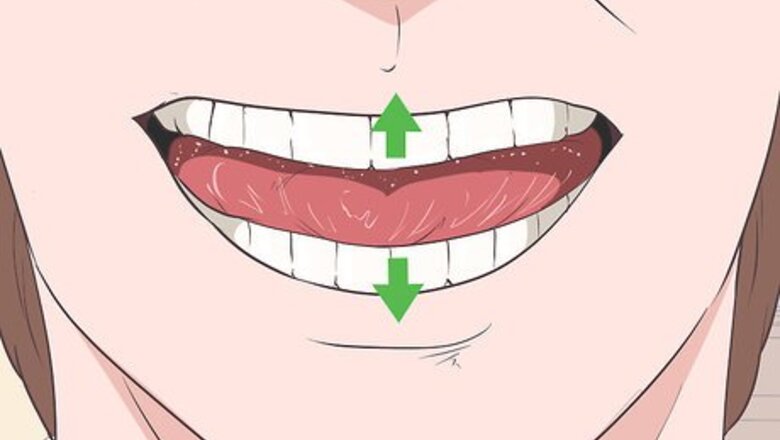
views
X
Trustworthy Source
Mayo Clinic
Educational website from one of the world's leading hospitals
Go to source
Since there are a number of causes for TMJ, there is no one cure for the jaw clicking it causes. However, there are plenty of home treatments that can help manage clicking and change the habits that make it worse. If home remedies don’t help, talk to your dentist about medical treatment.
Managing Clicking at Home
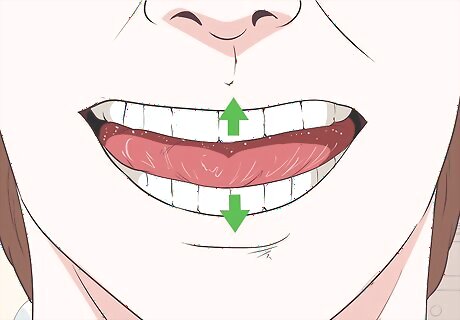
Relax your jaw by opening your mouth slightly. When you can, try to keep your jaw in a relaxed position by opening your mouth just enough so that your teeth don’t touch. This can relieve some of the pressure on the jaw that commonly causes clicking. If you notice yourself clenching your jaw or grinding your teeth, open your mouth slightly to stop creating excess pressure. If you wake up with pain in your jaw or teeth, then you may grind your teeth at night. Talk to your doctor about getting a mouth guard that you can wear while you sleep. You can also buy a mouth guard over-the-counter, which can be shaped to your mouth.
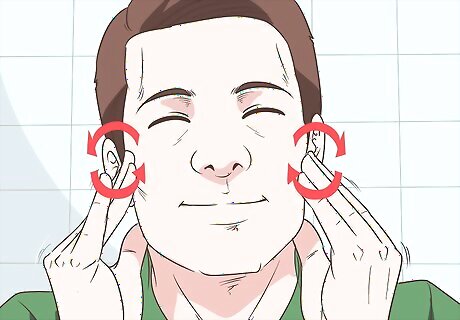
Massage your jaw to relieve muscle tightness. Tight muscles around the jawline can contribute to clicking and cause pain around your mouth. Place your forefingers on any sore areas, press down gently, and move your fingers in small circular motions until you feel the muscles relax. Repeat the massaging motions with your mouth open and closed to help relax all of your jawline muscles. You can also use a clean finger to massage the inside of your mouth with the same techniques if you feel muscle tightness in that area.

Take an over-the-counter pain medication. Clicking can be made worse when your jaw is inflamed. Taking a nonsteroidal anti-inflammatory drug (NSAID) such as naproxen or ibuprofen can help control pain and swelling, which in turn can reduce jaw clicking. TMJ doesn’t require any special dosage for NSAIDs. Just take them as directed on the medicine package or as otherwise directed by your doctor.
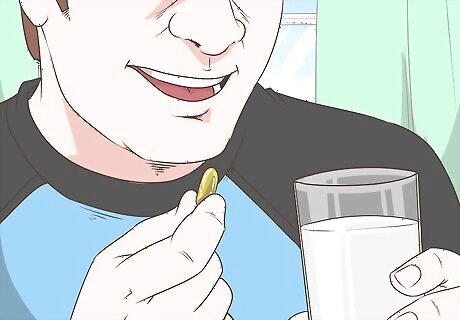
Take 500 mg of calcium and 250 mg of magnesium every day. Calcium and magnesium can work together to promote muscle relaxation. Dissolve powdered magnesium and calcium together in water, juice, or your coffee each morning to help reduce jaw clicking. If you can’t find the powdered version of these minerals, you can take capsule supplements. The powdered minerals are more readily absorbed by the body, though. Always talk to your doctor before you start a new supplement. They can help you check for any potential drug interactions or other risks and side effects based on your personal medical history.
Changing Habits that Cause Clicking
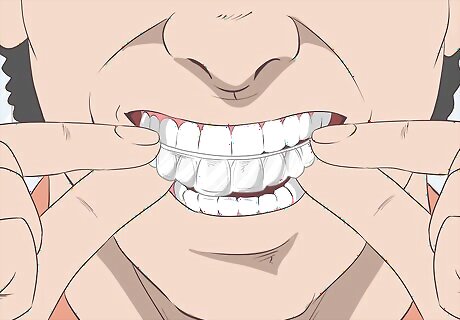
Wear a mouthguard to prevent teeth grinding. Grinding is a serious contributor to both clicking and pain in the jaw area. If you grind your teeth at night or while you work, consider getting a mouthguard. Your dentist can custom-fit one to your mouth, or you can get an inexpensive guard from many pharmacies and sporting goods stores. If you grind your teeth while you sleep, many pharmacies and drug stores sell mouthguards meant specifically for night time wear. Check these out, as they may be more comfortable for your sleeping hours.
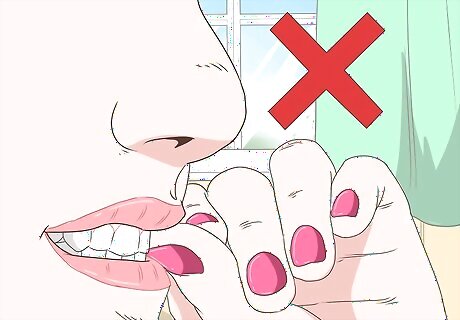
Try to stop nervous biting and chewing. Habits like chewing pencils or biting your nails can irritate your jaw, contributing to TMJ clicking. Try finding new ways to occupy your hands or direct nervous energy, such as by using a stress ball. You could also consider getting metal mechanical pencils that are unpleasant to chew. Sometimes, you might not even notice that you’ve started to bite or chew. Ask a friend or coworker to let you know if they see you biting or chewing nervously.

Eat softer foods instead of crunchy ones. Crunchy foods including raw vegetables, chips, hard pretzels, and breakfast cereals can exacerbate jaw clicking. When possible, try to eat softer foods such as pastas, cooked vegetables, omelets, and soup. Excessively chewy foods like soft caramels can make jaw popping worse, too. Try to avoid overly chewy foods.
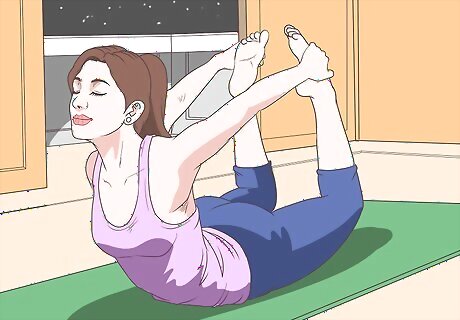
Work to reduce stress in your daily life. Stress can lead to clenching or grinding your teeth, which can in turn cause or worsen jaw clicking. Try to adopt a personal stress relief program. Even small changes such as practicing deep breathing in a stressful situation can help reduce physical symptoms. Try to take just 5 minutes a day to meditate. Sit in a comfortable position, close your eyes, and try to clear your mind. If you’re new to the practice, you may want to look up a guided meditation online to help take you through the process. If you find a certain situation at school or work is particularly stressful, excuse yourself for a moment. Walk into a calm area, and take a few deep breaths before going back in. Taking a quick walk during your lunch break or once you get home for the day can be a great way to relieve daily stress.
Getting Medical Assistance
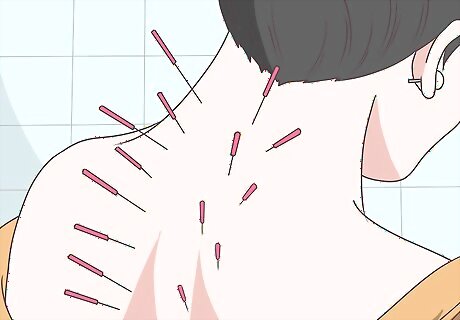
Try acupuncture as an alternative to home remedies. If home remedies aren’t working, getting acupuncture may help the muscle stress and jaw clenching that cause clicking. Look for a licensed acupuncturist in your area and let them know that you are specifically looking for help with clicking, tightness, and/or pain in your jaw. Acupuncture is an alternative medicine practice wherein very thin, hair-like needles are inserted into specific points on the body to help relieve pain, stress, or tension. It is usually recommended in conjunction with more traditional physical therapy practices.
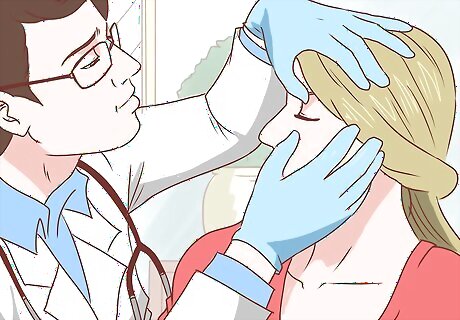
Meet with a physical therapist that specializes in facial stretches. Physical therapy can be particularly helpful for those who experience jaw clicking. Set up an appointment with a therapist who specializes in jaw or facial work. They will walk you through a series of stretches, exercises, and massages to help minimize the popping. Try searching online for a specialist near you. You can also ask your dentist to recommend you to a therapist in your area. You can also call your insurance provider to see if they can recommend a practitioner in your area that is covered by your medical or wellness plan.
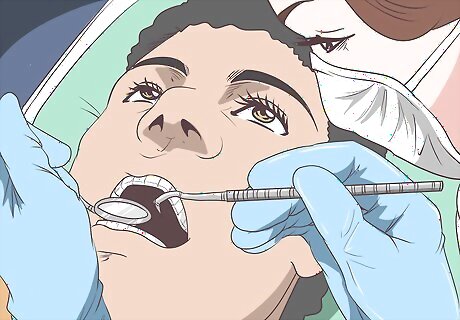
Ask your dentist about oral splints. An oral splint is kind of like a heavy duty mouth guard that fits over your teeth to stop you from grinding and clenching your jaw. Your dentist will fit you for your splints. They will also show you how to put them in, remove them, and properly care for them.
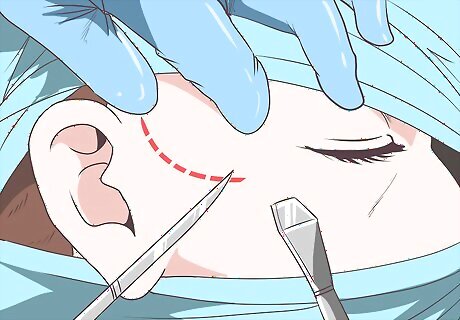
Talk to your dentist about surgical options. In cases where home treatment and medical therapy both fail to treat your TMJ, surgery may be necessary. The exact surgical procedure you will need depends on the severity of your conditions and the symptoms you experience. Common surgical treatments include: Arthrocentesis. This is a minimally invasive procedure that uses a series of small needles to irrigate fluid into the joint and flush out any debris and inflammatory byproducts. Open-joint surgery. In this procedure, an oral surgeon opens up your jaw to repair your joint. This procedure involves more risk than other surgical options, so it should be carefully discussed with your dentist. TMJ arthroscopy. This procedure works like open-joint surgery to repair your joint, but uses an arthroscope and small surgical tools to work on the jaw. It’s a less invasive and less risky than open-joint surgery.










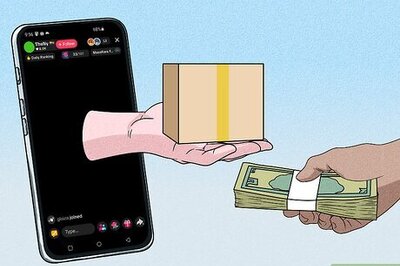

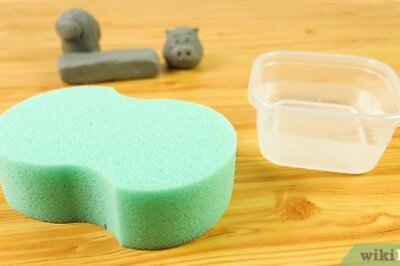

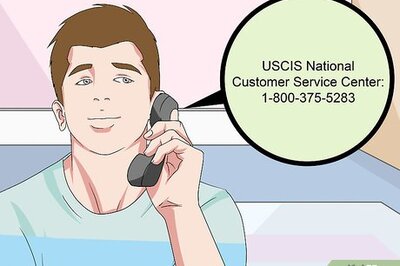


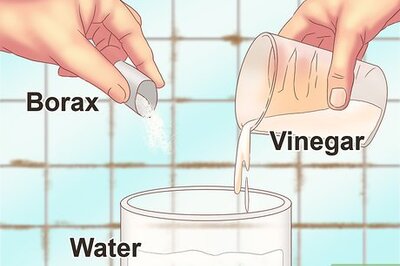

Comments
0 comment